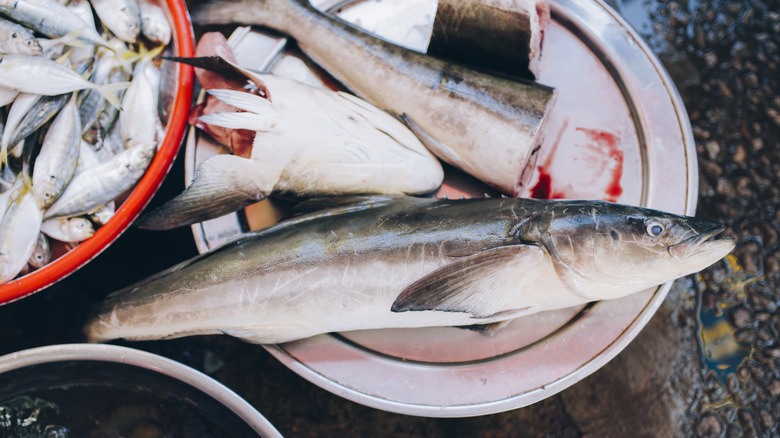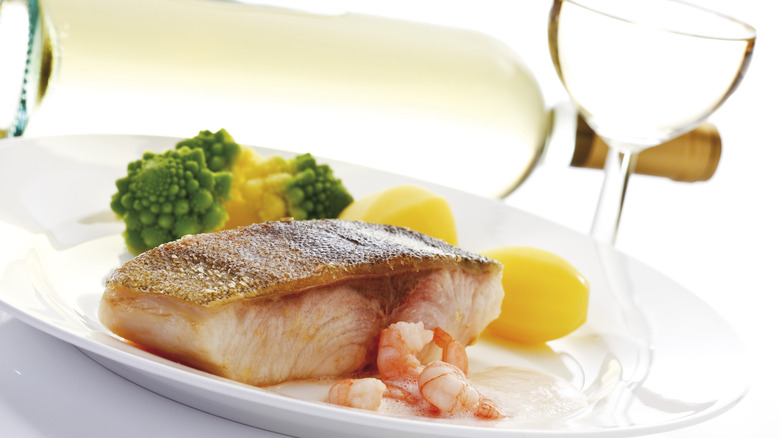Why Cobia Is So Versatile
Sourcing sustainable seafood is no easy task. According to the Environmental Defense Fund, 3 billion people worldwide are dependent on seafood as a source of protein. Unfortunately, overfishing has led to damaged ecosystems and food insecurity in many parts of the world. Greenpeace's list of overfished species includes Atlantic halibut, albacore tuna, pollock, red snapper, and Atlantic cod.
One solution to the problem has been to catch more underutilized seafood to let the endangered populations recover. Buying Seafood describes underutilized species as those which have traditionally been glossed over due to the perception that people won't buy them en masse the way they do cod, salmon, or haddock. Keep in mind, however, that this is not a be-all-end-all method of sustainability. The uncommon species have just as much potential to be overfished as the popular ones.
Cobia is one such example of an underutilized species. A white fish that can act as a base for various dishes, cobia has traditionally been considered more of a sport fish than a commercial fish (as per Buying Seafood). However, due to its versatility and abundance, cobia is becoming an increasingly more popular market choice.
Sub in the cobia
What makes cobia so versatile is its very nature. According to the National Oceanic and Atmospheric Association (NOAA), cobia are sometimes mistaken for sharks owing to their dark brown complexion and singular dorsal fin. Like sharks, cobia are predatory, feeding mainly on crustaceans and smaller fish. They are most abundant in southern Atlantic waters. NOAA says the migratory range stretches southward from Virginia into the Gulf of Mexico.
Tackle Village describes the taste of cobia as sweet and buttery. The meat is firm but low in fat and mercury. Being a mildly flavored white fish, cobia can easily be substituted for haddock, cod, or halibut and would work excellently seared, baked, or as a base for chowder. Check out this recipe for cobia escabeche for some additional inspiration.
Cobia numbers are strong, with the NOAA reporting that the total 2020 catch amounted to 131,000 lbs. While not overfished, there is always the potential that cobia could become the next species in need of a break. For now, however, the population is sustainable, meaning more cobia will be making its way from the sea to our plates.

